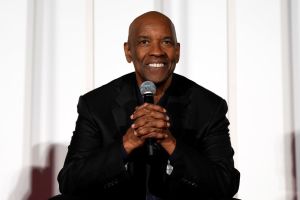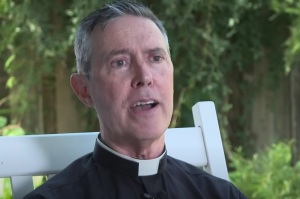We Could Use Some Rest: Busyness and Angst
For the past few months, the New York Times has been running a series on anxiety at its "Opinionator" blog. According to the Times, "for many," anxiety "is not a disorder, but a part of the human condition." The series' stated goal is to explore "how we navigate the worried mind, through essay, art and memoir."
Reading the contributions, I'm struck by two things: first, the worries and anxieties being discussed are, for the most part, the epitome of what has been dubbed "first world problems." What's being explored isn't the struggle to make ends meet, much less the hand-to-mouth existence that billions around the planet struggle with.
Nor is it the stuff of mood disorders that require medical help. Instead, it's the stuff of "angst," a kind of dread that comes from the suspicion that life, as we presently live it, doesn't make sense.
Well, it doesn't, which makes the conspicuous absence of faith in the discussion - my second observation - all the more, well, conspicuous.
A telling example is a recent entry entitled "The Busyness Trap" by Tim Kreider. Kreider points out that when most people say that they're "busy," they aren't talking about working multiple jobs to put food on the table or "pulling back-to-back shifts in the ICU."
No, the busyness being complained about is "almost always...self-imposed: work and obligations they've taken on voluntarily, classes and activities they've 'encouraged' their kids to participate in." It's the busyness of people who "feel anxious and guilty when they aren't either working or doing something to promote their work."
According to Kreider, what lies behind this busyness isn't simply ambition and drive; it's also a "dread [of] what they might have to face in its absence." That's because "busyness serves as a kind of existential reassurance, [and] a hedge against emptiness."
It's our way of telling ourselves that our lives "cannot possibly be silly or trivial or meaningless" if we are "in demand every hour of the day."
Reading Kreider's words, Jesus' invitation to the crowd in Matthew 11 came to mind, "Come to me, all who labor and are heavy laden, and I will give you rest." One of the reasons the Gospel is good news is that it says something we desperately need to hear: "You don't have to try so hard. You are loved and valued beyond imagination. Nothing you do can possibly make that more true."
The flipside of the good news is that the rejection of Jesus' invitation to put on His yoke makes us vulnerable to the kind of ceaseless and pointless striving that Kreider describes. As St. Augustine famously wrote, "You have made us for yourself, O Lord, and our hearts are restless until they rest in you."
While it's easy to find examples of this restlessness here in New York and in Washington where my BreakPoint colleagues live, it's by no means limited to these places, and if we're honest, not limited to non-Christians.
That raises the disturbing possibility that one of the reasons faith is conspicuously absent from the Times' discussion of anxiety is that there aren't enough examples of faith making a difference, that we Christians are as busy as everybody else. And that should leave all of us, if not anxious, at least a tad bit concerned.




























